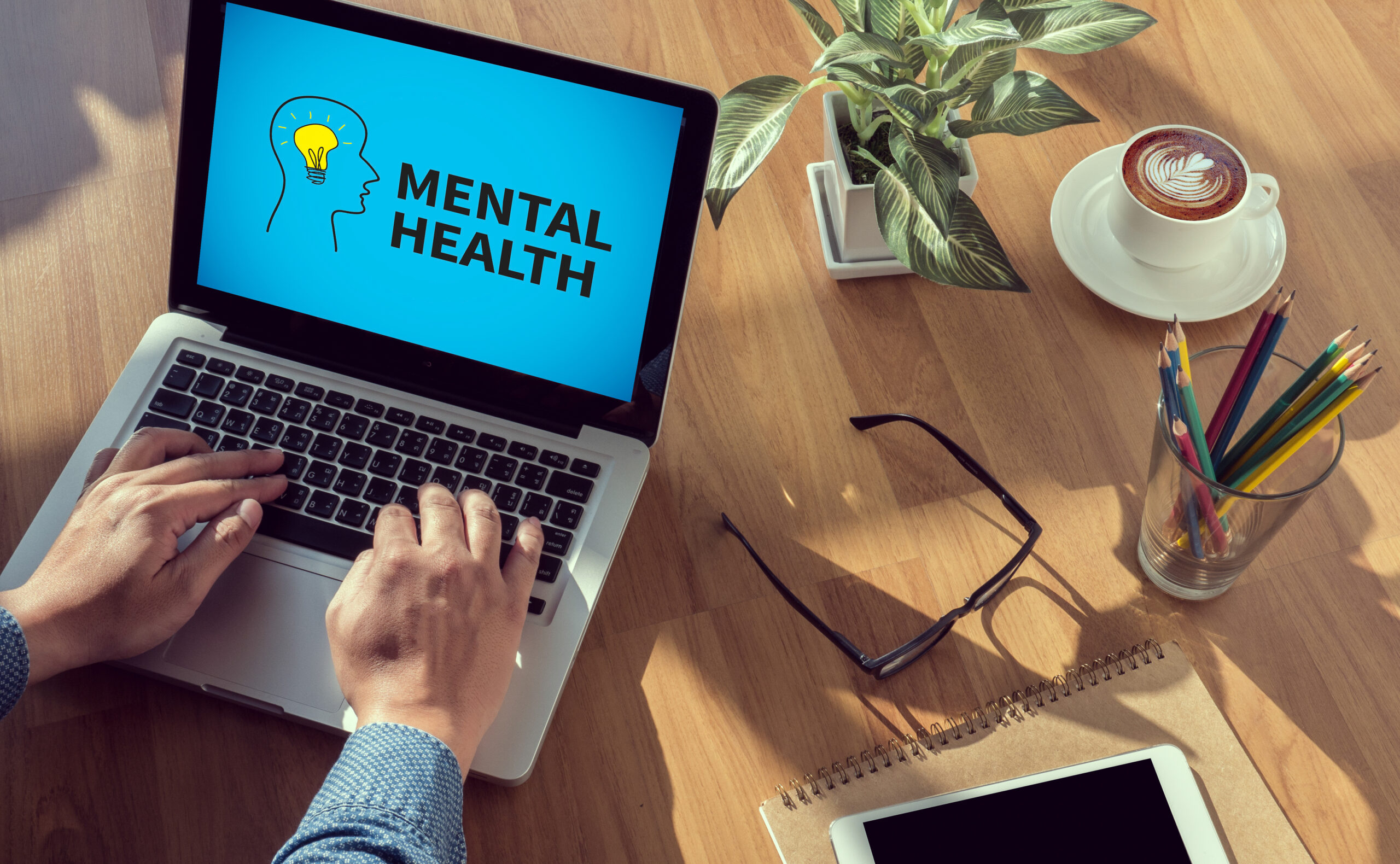
We’ve all heard the warnings about screen time.
“Put down that device!”
“Digital detox or bust!”
But what if this well-meaning advice isn’t working?
Let’s explore why entirely ditching your screens might not be the answer you’re looking for.
Let’s talk about you – you’re busy juggling countless tasks, balancing work, life, kids, and loved ones, and having some free time for yourself, all without losing your mind.
You probably feel guilty every time you pick up your phone. It’s time to cut yourself some slack!
We live in a world where technology is as available as air. Avoiding screens entirely is like trying to avoid breathing—it’s just not practical!
Instead of feeling guilty about our screen time, let’s consider how to make technology work for us, not against us.
You might wonder, “But isn’t all this screen time bad for me?”
Not necessarily!
Research from the Oxford Internet Institute found that moderate digital technology use is beneficial. It’s not about how much time you spend on screens, but how you use it.
Did you know that certain apps can boost your mental health
Take Headspace or Calm – these meditation apps can help reduce stress and anxiety. Or consider how video calls have connected us with loved ones during challenging times.
That’s not something to feel guilty about – that’s technology enhancing our lives!
But what about all those messages telling you to detox? Consider this: what if we treated our digital lives like we treat our diets? Instead of going on an extreme ‘digital cleanse’, why not aim for a balanced ‘digital diet’? Just as we don’t completely cut out food groups, we don’t need to eliminate screen time. It’s all about moderation and mindful usage.
So, the next time someone tells you to “digitally detox,” remember that when used thoughtfully, mobile devices can be powerful tools for mental health and well-being. It’s not about quitting cold turkey—it’s about learning to use tech to enhance your life rather than detract from it.
Ready to rethink your relationship with screens?
Let’s review some valuable strategies for making technology work for you guilt-free. In today’s digital age, shouldn’t we focus on promoting digital wellness instead of avoiding all digital activities?
It’s something to think about.

Challenging the Screen Time Myth
Not all screen time is created equal.
While we often hear about the dangers of excessive screen use, this view oversimplifies a complex issue. Screens can offer numerous benefits frequently overlooked in the digital detox narrative.
Let’s consider some examples:
Video calls allow us to maintain close connections with loved ones across vast distances.
Online learning platforms provide access to world-class education from anywhere.
Mental health apps offer tools for meditation, mood tracking, and even virtual therapy sessions.
Professional networking sites create opportunities for career growth and collaboration.
Recent research supports a more nuanced view of screen time. A large-scale study published in “Psychological Science” found that moderate digital technology use “is not intrinsically harmful and may be advantageous in a connected world”. This challenges the popular notion that all screen time is detrimental to our well-being.
Furthermore, during the COVID-19 pandemic, screens became lifelines for many, enabling remote work, education, and social connections. This global event highlighted how digital technologies can support resilience and adaptability in challenging times.
While mindless scrolling or excessive use of certain apps can be problematic, it’s crucial to recognise that screens are tools. Like any tool, their impact depends on how we use them. Instead of condemning all screen time, we should focus on developing healthy digital habits and leveraging technology to enhance our lives.

Cultivating a Healthy Screen Time Lifestyle
In our digital age, it’s about reducing screen time and using our devices more intentionally. Research suggests that how we engage with technology matters more than the total time spent. A study published in the Journal of Computer-Mediated Communication found that active and purposeful use of social media was associated with increased well-being, while passive consumption had adverse effects.
Here are some strategies for more mindful screen use:
Set intentional limits on social media: Use built-in app timers or third-party apps to restrict your daily usage of platforms that tend to encourage mindless scrolling.
Track your habits: Utilise screen time tracking features on your devices to become aware of your usage patterns. This self-awareness is the first step towards making positive changes.
Embrace beneficial apps: Not all screen time is created equal. Apps like Calm, Headspace, or Insight Timer can support mental health through guided meditations and mindfulness exercises.
Create tech-free zones: Designate certain areas in your home, like the bedroom or dining room, as device-free spaces to encourage more present, face-to-face interactions.
By implementing these strategies, we can harness the benefits of technology while minimising its potential drawbacks. Remember, the goal isn’t to eliminate screen time but to create a balanced digital lifestyle that enhances rather than detracts from our overall well-being.
How Screen Time Supports Mental Health
When used thoughtfully, screens can be powerful tools for maintaining and improving mental well-being.
Let’s explore some ways technology can positively impact our mental health:
Meditation and mindfulness apps, such as Headspace or Calm, provide guided exercises that can help reduce stress and anxiety. These apps make it easy for anyone to practice mindfulness, even if they’re new to meditation.
Mental health tracking apps allow users to monitor their moods, sleep patterns, and other factors that affect mental health. Individuals can better understand and manage their mental well-being by identifying patterns and triggers. Apps like Moodfit or Daylio are great examples of this technology in action.
Telehealth platforms have made professional mental health support more accessible than ever. Services like BetterHelp or Talkspace connect users with licensed therapists for virtual sessions, breaking down barriers of distance and scheduling conflicts.
Online support groups offer a sense of community and understanding for various mental health conditions. Platforms like 7 Cups or Mental Health online communities provide safe spaces for individuals to share experiences and find support from others facing similar challenges.
Research supports the effectiveness of these digital tools. A study published in the Journal of Medical Internet Research found that mental health apps can be effective in reducing symptoms of depression. Another study in the journal NPJ Digital Medicine showed that smartphone-based interventions can significantly reduce anxiety symptoms.
While it’s essential to use these tools mindfully and in conjunction with professional advice when needed, they demonstrate how screens can be valuable allies in supporting our mental health journey.

When a Screen Time Digital Detox Might Help
While we’ve discussed the benefits of mindful screen use, there are situations where taking a break from screens can be beneficial. Recognising when a short-term digital detox might help reset habits and provide clarity is essential.
Here are some scenarios where reducing screen time could be helpful:
When social media use is negatively impacting your self-esteem or sleep patterns. Research has shown that excessive social media use can lead to increased feelings of loneliness and depression.
If screen use is interfering with your work or personal relationships. For example, if you check your phone during conversations or miss deadlines due to online distractions.
When constantly distracted by notifications, focusing on tasks or being present in the moment can be challenging.
If you’re experiencing physical symptoms like eye strain, neck pain, or headaches due to prolonged screen use.
In these cases, a short-term break or reduction in screen use might be beneficial. However, you don’t need to cut off all technology completely. Instead, try setting specific times for checking emails or social media or designating certain hours as “screen-free” time.
Remember, the goal isn’t eliminating screens and creating a healthier balance.
By being aware of how screen use affects you and making adjustments when needed, you can maintain a positive relationship with technology while prioritising your overall well-being.
 Ready to improve your relationship with technology?
Ready to improve your relationship with technology?
Here are two ways to get started:
Book a consultation with us to discuss your digital habits and explore how they impact your mental health.
Review our 2-part free guide on achieving balanced screen use without needing a complete detox.
Believing that all screen time is harmful can lead to unnecessary guilt and avoidance of helpful technology. This mindset may cause you to miss valuable digital resources supporting your mental health and well-being.
By developing a healthy relationship with screens, you can enhance your mental well-being rather than harm it. This balanced approach reduces unnecessary guilt about screen use. It allows you to leverage digital tools to support your overall health and productivity.
Finding the right balance with technology is critical. Here are some practical tips to help you achieve this:
Use screens purposefully rather than out of habit. Before picking up your device, ask yourself why you’re doing it.
Set clear boundaries around work-related screen use. For example, avoid checking work emails after a specific time in the evening.
Engage in regular offline activities you enjoy. This could be reading a physical book, walking, or practising a hobby.
Practice digital mindfulness by being present during screen use. Pay attention to how you feel while using different apps or websites.
Remember, technology is a tool.
By using it intentionally, we can enhance our lives and support our mental health without feeling the need for extreme measures like complete digital detoxes. Instead of feeling guilty about screen time, focus on cultivating a healthy, balanced relationship with technology.
If you’re concerned about how your digital habits are affecting your mental health, consider speaking with a mental health professional who can provide personalised guidance. By adopting a more nuanced approach to screen time, we can better support our mental health in the digital age, harnessing the benefits of technology while mitigating its potential drawbacks.
The goal isn’t to eliminate screens from your life but to use them to enhance your well-being. With mindful use and the right strategies, you can make technology work for you, not against you.
References
Healing Holidays, 2024. 10 Reasons to Do a Digital Detox. [online] Available at: https://www.healingholidays.com/blog/10-reasons-to-do-a-digital-detox [Accessed 5 September 2024].
Orben, A., 2020. Teenagers, screens and social media: a narrative review of reviews and key studies. Social Psychiatry and Psychiatric Epidemiology, 55(4), pp.407-414.
Radovic, A., Badawy, S.M., Balhara, Y.P.S. and Erausquin, J.T., 2022. A decade of digital medicine for youth: lessons learned and future directions. Digital health, 8, p.20552076221074485.
Healthline, 2024. Best Mental Health Apps of 2024. [online] Available at: https://www.healthline.com/health/mental-health/mental-health-apps [Accessed 5 September 2024].
Firth, J., Torous, J., Nicholas, J., Carney, R., Pratap, A., Rosenbaum, S. and Sarris, J., 2017. The efficacy of smartphone-based mental health interventions for depressive symptoms: a meta-analysis of randomized controlled trials. World Psychiatry, 16(3), pp.287-298.
Power to Persuade, 2024. Beyond Screen Time Limits: Rethinking Digital Media Policies for Youth Mental Health. [online] Available at: https://www.powertopersuade.org.au/blog/beyond-screen-time-limits-rethinking-digital-media-policies-for-youth-mental-health/2/7/2024 [Accessed 5 September 2024].
WebMD, 2024. What Is Digital Detox?. [online] Available at: https://www.webmd.com/balance/what-is-digital-detox [Accessed 5 September 2024].
Lifeline, 2024. How to do a digital detox. [online] Available at: https://toolkit.lifeline.org.au/articles/techniques/how-to-do-a-digital-detox [Accessed 5 September 2024].[/caption]


